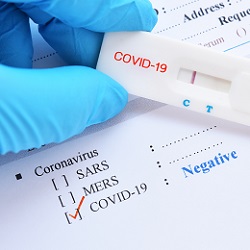To help you and your lab team navigate the Z-Code application process, The Dark Report presents this 90-Minute Special Report Premium Webinar (original air date June 29, 2023), titled, “Essential Guide to Obtaining Z-Codes for Molecular and Genetic Tests.”
First to speak will be Gabriel Bien-Willner, MD, Director of PalmettoGBA’s MolDx Program and the DEX™ Diagnostics Exchange that manages the Z-Code program. This is your opportunity to hear—firsthand—the A-Z process of applying for a Z-Code, providing the required documentation of test accuracy and clinical utility, and receiving the Z-Code your lab will need to have its genetic test claims paid by UHC after October 1st.
The second expert will be Valerie Collier, MS, CGC, Genetic Counselor at ARUP Laboratories of Salt Lake City. For almost a decade, ARUP Laboratories has obtained Z-Codes for its innovative molecular tests. Collier will share ARUP’s lessons learned in the process of submitting a Z-Code application and interacting with the DEX MolDx program from initial submission through the granting of a Z-Code.
Next to speak will be Kyle Fetter, Chief Operating Officer at XiFin, the lab revenue cycle management company based in San Diego. His team has been working with lab clients to meet the molecular and genetic test requirements of Medicare’s MolDx program, including successfully obtaining the Z-Codes needed to submit Medicare claims in the 28 states participating in the MolDx program.
Listen and learn from the shared wisdom of our expert faculty as they address key issues in these primary areas:
Structure and Function of DEX MolDx and Z-Code Registry
Learn why these programs were launched and how they evolved into their current forms within the federal Medicare and Medicaid programs. Understand how Z-Codes enable health plans to understand the function of the molecular test and how Z-Codes contribute to improved patient care.
Application Process for Obtaining Z-Codes
Master the basics of preparing and submitting applications for Z-Codes. Recognize the needed information that accompanies the application. Identify best ways to manage requests for additional documentation. Know what expedites a Z-Code application, along with common reasons why a Z-Code application is delayed or additional information is requested to continue the process.
Interplay with CPT Codes, PLA Codes, and ICD-10 Codes
Understand the requirements when the test is not FDA-cleared or its use is inconsistent with the intended-use labeling. Become familiar with the requirements for a test application where the test does not have a CPT code or PLA code, or it does not have an accompanying ICD-10 code.
Analytical and Clinical Validation Documentation
The heart of every Z-Code application is the documentation that supports analytical validation of the assay, as well as clinical validation. Learn the appropriate number of samples needed to establish clinical validation for each variant type (SNV, Indels, CNVs, Fusions, TMB, etc.) as part of the assessment. Understand the definition of a clinical specimen (a sample from a patient affected with a disorder or disease that aligns with the assay’s intended use). Know what is required to use purchased reference material or contrived samples to establish analytical validation and why this material will not be accepted as clinical specimens.
Best Practices When Submitting Z-Code Applications
Hear the practical lessons learned by the speaker’s clinical labs when submitting Z-Code applications and responding to requests for additional documentation. Master the secrets of submitting a properly-documented application to speed its review. Learn the common mistakes and pitfalls to avoid. Acquire understanding of what literature DEX will accept in support a Z-Code application and where to find listings of the literature determined to be insufficient to support clinical utility.







